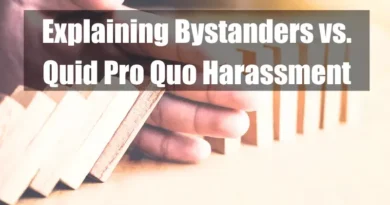20 You Scratch My Back, I’ll Scratch Yours Synonyms
Here are 20 synonyms for the phrase “you scratch my back, I’ll scratch yours”:
- One hand washes the other.
- A favor for a favor.
- Tit for tat.
- Quid pro quo.
- I help you, you help me.
- Mutual backscratching.
- Give and take.
- Reciprocal altruism.
- I do you a favor; you do me a favor.
- Scratch my itch; I’ll scratch yours.
- I’ll return the favor.
- Help me; I’ll help you.
- Trading favors.
- You do me a good turn; I’ll do you one.
- You rub my back, I’ll rub yours.
- Mutual aid.
- Reciprocity.
- Share the load.
- Mutual support.
- You help me out; I’ll return the favor.
Here’s how each phrase is a synonym of “you scratch my back, I’ll scratch yours”:
| Phrase | Meaning | Context Example |
|---|---|---|
| One hand washes the other | Mutual benefit through cooperation | “In business, it’s often a case of one hand washing the other.” |
| A favor for a favor | An exchange where one favor is returned with another | “I’ll lend you my car if you help me with my project – a favor for a favor.” |
| Tit for tat | A balanced exchange of actions, sometimes implying retaliation | “They agreed on a tit-for-tat arrangement to support each other’s campaigns.” |
| Quid pro quo | Something given or received in exchange for something else | The politician was accused of expecting a quid pro quo for his support. |
| I help you, you help me | Direct statement of mutual assistance | “Let’s work together – I help you, you help me.” |
| Mutual backscratching | Reciprocal support often implying personal gain | The two executives were known for their mutual backscratching. |
| Give and take | Balanced giving and receiving in a relationship | “A healthy relationship involves give and take.” |
| Reciprocal altruism | Helping others with the expectation of future reciprocation | “Animals often engage in reciprocal altruism for survival.” |
| I do you a favor, you do me a favor | Explicitly states the expectation of reciprocation | “In our neighborhood, it’s always I do you a favor, you do me a favor.” |
| Scratch my itch, I’ll scratch yours | Informal and colloquial variant emphasizing mutual relief or support | “If you cover my shift, I’ll cover yours – scratch my itch, I’ll scratch yours.” |
| I’ll return the favor | Promises future reciprocation of a favor | “Thanks for your help; I’ll return the favor next time.” |
| Help me, I’ll help you | Direct statement of mutual assistance | “We can achieve more if we adopt a help me, I’ll help you approach.” |
| Trading favors | Exchanging favors in a more transactional manner | In politics, trading favors is a common practice. |
| You do me a good turn, I’ll do you one | Mutual exchange of kind actions | “She offered to help him, saying you do me a good turn, I’ll do you one.” |
| You rub my back, I’ll rub yours | Physical metaphor for mutual support | Informal and conversational variant emphasizing mutual relief or support |
| Mutual aid | Cooperation and assistance between individuals or groups | The community thrives on mutual aid and support.” |
| Reciprocity | Principle of mutual exchange and fairness | “Reciprocity is key to maintaining healthy relationships.” |
| Share the load | Cooperative effort to lighten the burden | “In our team, we believe in sharing the load.” |
| Mutual support | Providing and receiving assistance and encouragement | “Their success was due to mutual support and teamwork.” |
| You help me out, I’ll return the favor | Combines direct assistance and future reciprocation | “Thanks for the ride – you help me out, I’ll return the favor soon.” |
1. One hand washes the other: This phrase implies mutual benefit through cooperation. Just as one hand helps clean the other, individuals can assist each other to achieve mutual goals. It’s a metaphor for reciprocal actions where each party gains something from the arrangement.
2. A favor for a favor: This straightforward expression describes a situation where one person does a favor for another with the expectation that the favor will be returned. It encapsulates the idea of mutual assistance and the expectation of reciprocity.
3. Tit for tat: Often used in a more strategic context, this phrase describes an exchange of actions where another reciprocates one action. While it can sometimes imply retaliation, it suggests a balanced give-and-take relationship in the context of mutual aid.
4. Quid pro quo: This Latin phrase means “something for something.” It directly refers to a situation where one thing is given or done in exchange for another. In the context of mutual aid, it highlights the transactional nature of the relationship, where each party expects to receive something of value in return for what they give.
5. I help you, you help me: This phrase is a direct statement of mutual assistance. It underscores the concept of reciprocal help, where each party benefits by supporting the other. It simplifies the idea of mutual benefit into a clear and straightforward exchange.
6. Mutual backscratching: Similar to the original phrase, this term emphasizes the reciprocal nature of the relationship. It conveys the idea that both parties will support each other, often in a context where personal benefits are gained through mutual assistance.
7. Give and take: This phrase highlights the balance of giving and receiving in a relationship. It implies that both parties are willing to contribute to and benefit from the relationship. It often describes healthy, reciprocal interactions where both sides feel valued and supported.
8. Reciprocal altruism: This term comes from evolutionary biology and describes a behavior where one organism helps another with the expectation that the favor will be returned. In human terms, it refers to acts of kindness or assistance that are given with the expectation of future reciprocation, promoting cooperation and mutual benefit.
9. I do you a favor, you do me a favor: This phrase explicitly states the expectation of reciprocation. It emphasizes the transactional nature of the interaction, where favors are exchanged with the understanding that both parties will benefit equally from the arrangement.
10. Scratch my itch, I’ll scratch yours: Similar to the original phrase, this variant emphasizes the reciprocal nature of the relationship more informally and colloquially. It suggests that each party will provide relief or assistance to the other in turn.
11. I’ll return the favor: This phrase highlights the promise of future reciprocation. It indicates a commitment to repay a kindness or assistance received, reinforcing the idea of mutual support and balanced exchanges.
12. Help me, I’ll help you: This direct statement reinforces the concept of mutual assistance. It emphasizes that support will be given with the understanding that it will be reciprocated, fostering cooperation and interdependence.
13. Trading favors: This phrase suggests a more transactional and business-like approach to mutual assistance. It implies that favors are exchanged as part of a deal or agreement, where each party expects to benefit from the trade.
14. You do me a good turn, I’ll do you one: This phrase conveys the idea of reciprocation through kind actions. It emphasizes the positive and cooperative aspect of mutual assistance, where each party performs a kind deed with the expectation of a similar response.
15. You rub my back, I’ll rub yours: Similar to the original phrase, this variant highlights the physical act of mutual support. It suggests that each party will provide comfort or assistance to the other, reinforcing the idea of balanced and reciprocal help.
16. Mutual aid: This term refers to cooperation and assistance between individuals or groups for mutual benefit. It underscores the idea that both parties will contribute to and benefit from the relationship, promoting solidarity and collective support.
17. Reciprocity: This term encapsulates the principle of mutual exchange. It implies that actions or benefits given by one party will be returned by the other, fostering a sense of balance and fairness in the relationship.
18. Share the load: This phrase emphasizes the cooperative aspect of mutual assistance. It suggests that both parties contribute to a shared task or responsibility, lightening each other’s burden through teamwork and collaboration.
19. Mutual support: This term highlights the idea of providing assistance and encouragement to each other. It emphasizes the reciprocal nature of the relationship, where both parties benefit from the support they receive and give.
20. You help me out, and I’ll return the favor: This phrase combines elements of direct assistance and future reciprocation. It reinforces the idea that the help given will be help returned, promoting a sense of balance and mutual benefit in the relationship.
Each phrase captures the essence of “you scratch my back, I’ll scratch yours” by emphasizing the interactions’ reciprocal and mutually beneficial nature.
In conclusion, “you scratch my back, I’ll scratch yours” is richly captured through various synonyms emphasizing mutual benefit and reciprocal assistance. From “one hand washes the other” to “mutual support,” each expression highlights the essence of cooperation, where each party provides help and expects to receive help in return. Whether through straightforward statements like “I help you, you help me” or more formal terms like “reciprocal altruism,” these synonyms underscore the balance and fairness inherent in reciprocal relationships.
They collectively illustrate how mutual aid and cooperation foster trust, support, and interdependence, creating a foundation for harmonious and productive interactions.
Understanding these varied expressions enriches our comprehension of reciprocal relationships, emphasizing the universal human principle of give and take.









